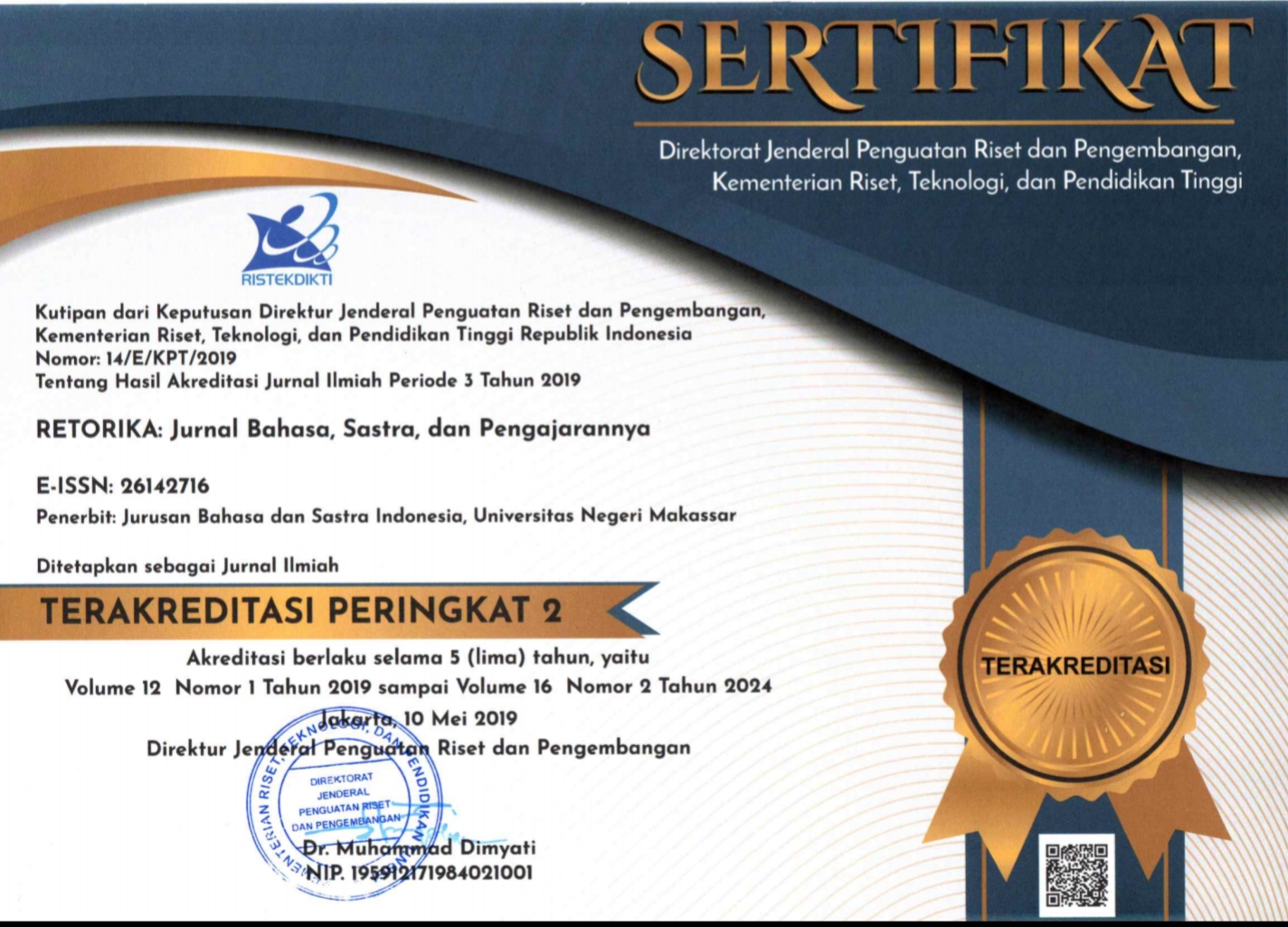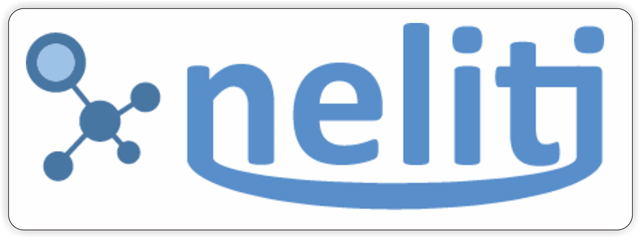HUBUNGAN PSIKOLINGUISTIK DALAM PEMEROLEHAN DAN PEMBELAJARAN BAHASA
(1)
(*) Corresponding Author
DOI: https://doi.org/10.26858/retorika.v10i1.4610
Abstract
Abstract. The Relationship of Psycholinguistics in the Acquisition and the Language Learning. Through psychological we can learn about how the attitudes and behavior of students in acquiring and learning the language while through linguistic whereas we can learn about the concept and structure of the language it self. At this stage of language acquisition are found four phases of language acquisition in children, namely: (1) Time of Babblings (starting from age 0 sampai1 year), (2) Time of Holofrase (beginning at age 1 to 2 years), (3) Time of Speech Two words (beginning at age 2 up to 2 years and 6 months) (4) Time of starts Grammar (beginning at age 2 years and 6 months - up to 3 years of age). And four advanced stages, namely; (1) Stage of sensorimotor (birth until the age of 2–3 years), (2) the pre-operational stage (ages 3 to 6 or 7 years), (3)The Operational Discipline stage (ages 6/7 years to 11 or 12 years), (4) Operations formal stage (age 12 to adult). While the formal process of learning a language in a formal setting as well, such as language learning in the classroom. Not important to learn anywhere though not in the classroom during the learning process directed at the mastery of the language rule is recognized by educators and learners, its process is called learning. In the process of formal and informal learning the psycholinguistic process works to acquire knowledge through learning languages. This interdisciplinary so can lead educators to understand the processes that occur within each learners face when they try to understand and provide the missing understanding of language learning material presented in the class.
Full Text:
PDFArticle Metrics
Abstract view : 8811 times | PDF view : 9141 timesRefbacks
- There are currently no refbacks.
Copyright (c) 2017 RETORIKA: Jurnal Bahasa, Sastra, dan Pengajarannya
Published by:
Department of Indonesian Language, Faculty of Languages and Literature, Universitas Negeri Makassar in cooperate with Asosiasi Dosen Bahasa dan Sastra Indonesia (ADOBSI) and Ikatan Program Studi Pendidikan Bahasa dan Sastra Indonesia (IKAPROBSI).
Address: Department of Indonesian Language Office, DG Building Second Floor, UNM Parangtambung, Daeng Tata Raya Street, Makassar, South Sulawesi, Indonesia
 Email: retorika@unm.ac.id
Email: retorika@unm.ac.id

RETORIKA: Jurnal Bahasa, Sastra,dan Pengajarannya is licensed under a Creative Commons Attribution-NonCommercial 4.0 International License.
















